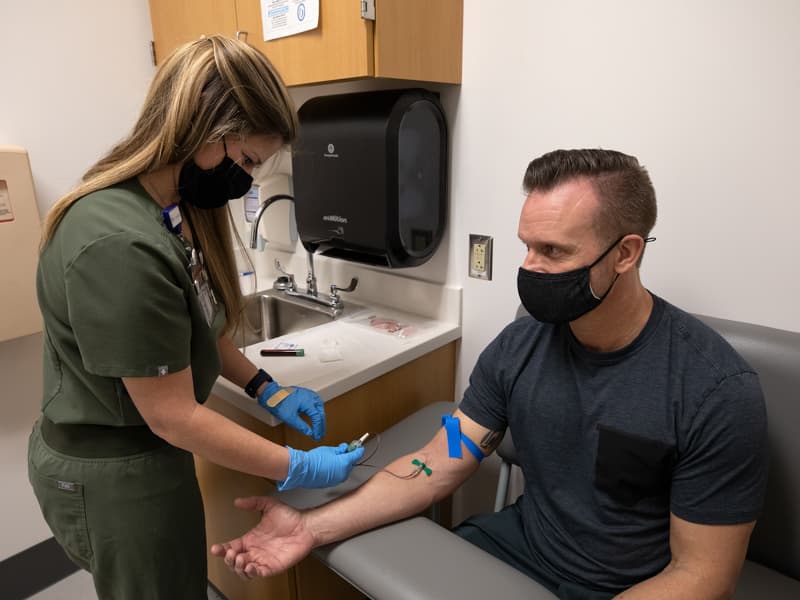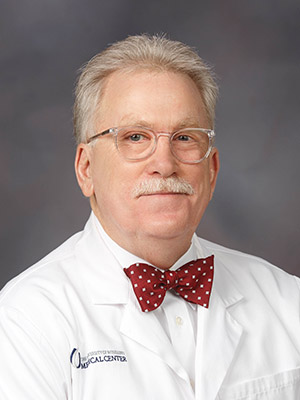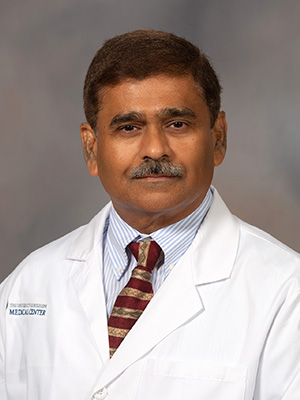Even during pandemic, UMMC Research hits record heights

Basic science. Clinical science. Population science. Team science.
Getting visionary research leadership down to a science.
They’re among the factors that led University of Mississippi Medical Center researchers and clinicians over the past year to top their participation in new clinical research studies for a third year in a row.
UMMC in FY 20 took part in about 100 clinical trials, some of them with partners at other research institutions. That’s up from 74 in FY 19 and 46 trials in FY 18. Over the past year, UMMC has taken part in 27 clinical research studies, with 1,562 enrollments, focused on solutions to the COVID-19 pandemic, including safe and effective treatment and vaccines.

But how, in a year marked by the horrors of a pandemic that affected all corners of the Medical Center, was so much accomplished?
That’s what happens when researchers and clinicians resolve to practice in teams, breaking down silos and harnessing basic science to improve outcomes in the nation’s sickest state.

“We’ve been building the infrastructure that would facilitate research and investing in strategic initiatives that allow us to position ourselves for more research,” said Dr. Richard Summers, associate vice chancellor for research and Billy S. Guyton Professor of Emergency Medicine.
“We opened the Translational Research Center just a few years ago, and that created an environment for team science. Some of the things we addressed very early in the pandemic required our basic scientists and our clinicians to work together. The development of our lab-derived COVID-19 test required that collaboration.”
The Medical Center’s perseverance in its research mission, even in the face of adversity, has been a multi-pronged effort, said Dr. Gailen Marshall, R. Faser Triplett Sr. MD Chair of Allergy and Immunology and executive director of the Mississippi Clinical Research and Trials Center.

“First is the vision for developing our clinical research enterprise, and that lies solely at the feet of Richard Summers,” he said. “He had that vision when he took over as associate vice chancellor for research, and that translated into recruiting new investigators and a much broader percentage of the overall research budget going for clinically related translational work.”
During 2020 and over the last couple of years, Summers, said, UMMC stepped up its clinical trials and telehealth research. It became obvious during the early days of the pandemic that telehealth “was a way forward,” he said. “We were already positioned for it and took advantage of it to get federal funding to build on it. So much around the practice of telemedicine is unknown. We’ve taken advantage of that.”
UMMC also owes its research success to an appreciation for something that at times seemed in short supply as COVID-19 unfolded globally: Basic science, practiced collaboratively.
Just one example: Several years ago in UMMC’s ICUs, a staph bacteria emerged that was resistant to many antibiotics. “Our clinicians worked with the Department of Microbiology and discovered there were four strains that were eluding treatment,” Summers remembered. “We attacked it and overcame a clinical problem.

“That gave us experience for when the pandemic rolled around. Only through this team science approach can we be proactive and attack such problems.”
Researchers from across the Medical Center “operationalized” the vision given to them by both leadership and seasoned researchers, Marshall said. “If not for that, we would not have been in a position to do these trials with the repetitiveness and urgency they required,” he said. “We opened up the clinical research unit in the main hospital just four months before the pandemic struck.
“We were allowed to go into overdrive and to build up personnel, even at a time of strong economic consequences to the institution from COVID itself.”
Although the number of clinical trials accomplished at UMMC has grown annually, pulling off one successfully isn’t easy, pandemic or no pandemic. “It’s so much more than bringing someone into a research clinic and that person giving blood,” Marshall said. “There’s a tremendous amount of support that’s necessary to do a clinical trial.”
That goes back to collaboration.

“It’s impossible to do successful clinical research unless you do it as a team,” said Dr. Abhay Bhatt, professor of neonatology and his division’s director of research.
Over the last year, Bhatt said, “not everything stopped, even during the height of the pandemic.” That included, with COVID-19 safety measures in place, his participation in an international trial to improve respiratory and neurologic outcomes in premature babies.
“When moms are having hypertension and things like that, and if their babies are born prematurely, those babies not only can be very sick when born, but long term, they can have significant lung problems and neurocognitive problems,” he said.
The Insulin-like Growth Factor 1 trial, or IGF-1, involves giving premature babies IGF-1 if they are no longer getting it from their mother’s placenta. “We realized that if you give the babies what they are missing, you can improve their lung growth and might be able to protect their brain,” Bhatt said.
The trial at UMMC has been so successful, he said, that his team was asked to pause its participation so that other institutions could catch up with enrollment. Bhatt is currently following about eight babies born at UMMC who received IGF-1 to track their growth and cognitive abilities.

In 2021, Summers said, “we will continue on with a number of clinical studies, including some vaccine trials, and looking at how antibodies respond to that. That’s still not nationally known, and we have great researchers with platforms to look at this.
“Many of the pathologies that have been neglected during the pandemic will need to be addressed, particularly cancer. Diagnoses are down nationwide, but I don’t think it’s because there’s less cancer.”
UMMC has just opened a Phase 1 cancer clinical trials operation in its state-of-the-art Clinical Research Trials Unit and is about to enroll patients, Summers said. The CRTU was launched in 2019 and is home to 22 inpatient and outpatient participant rooms, an eight-chair infusion center, a research pharmacy for investigational drug dispensing and more.
“He walked up to the seventh floor of the hospital and saw a clinical trials and research center instead of an empty shell, and he got the money for it,” Marshall said of Summers. “We built it. Dr. Summers gets individuals together with a variety of expertises for a common goal – to generate new knowledge to ultimately help our patients.”

In addition to expanding research, the Medical Center reaped $82.3 million in research grants in FY20. Over the last five or six years, “we’ve progressively increased our amount of funding,” Summers said. “During the first five months of this fiscal year, we hit $60 million. That’s a record pace to break $100 million for the year, and we hope that trend continues.”
The future of clinical trials, Marshall said, “looks very bright for us. We want to engage more departments and investigators willing to use our resources to conduct translational research through team science. We have the sacred goal of finding new and effective therapies for illnesses that affect our state’s population at a much higher rate than the rest of the nation.”
“We are influencing how the nation is viewing telemedicine,” Summers said. “Population Health has great grants moving forward, and basic science groups are getting very good National Institutes of Health-funded research grants. Basic science has been in the forefront at UMMC.”
UMMC’s researchers have the opportunity to learn more from science about what makes Mississippi a state with so much chronic disease, Marshall said. “We want to optimize our diversity in our clinical trial participants, as opposed to the old practice of studies in a majority white male population,” he said.
“The more people we have enrolled in our trials from different backgrounds and points of view, the more complete and applicable our research will be for the state’s population, the nation and the world.”


